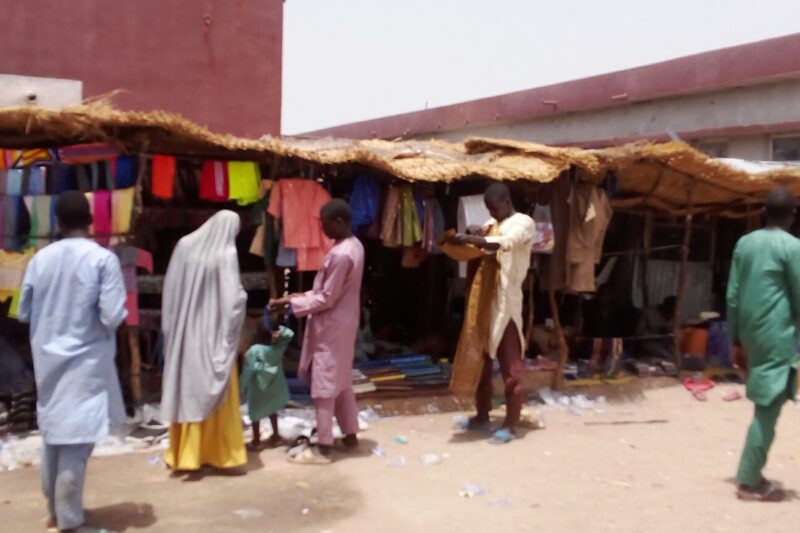Governor’s promise a sham as at least 300,000 refugees in Niger are still waiting to be repatriated to their ancestral hometowns in Borno State.
At least 300,000 Nigerian refugees in the Niger Republic have been waiting patiently to be repatriated – a promise made to them in March last year by Borno State governor Babagana Umaru Zulum.
Many refugees fled to Niger, as well as the other neighbouring countries of Chad and Cameroon, at the peak of the insurgency. It is estimated that more than two million people who fled to the three countries to escape deadly attacks by insurgents.
Most of them did not have a choice. If they had not left their hometowns close to the borders of the three countries, they would have been killed by insurgents.
In March last year, the federal government of Nigeria approved ₦15 billion for the repatriation of Nigerian refugees in Niger and Chad.
Zulum visited Chad in March and told RNI that he was there to discuss modalities for the “safe and dignified” repatriation of the Nigerian refugees in Chad and Niger.
Zulum said: “By the grace of God, we are going to start the repatriation in April or the first week of May 2023.” So far, not a single refugee has been repatriated.
In mid-2023, relations between Nigeria and Niger deteriorated after the July 26 military coup in Niger. Nigeria, through the Economic Community of West African States (ECOWAS), imposed several economic sanctions on Niger and closed its land and air borders with that country.
The sanctions on Niger has had an enormous effect on the relationship between Niger citizens and the Nigerian refugees, whose fate is uncertain to say the least.
Salisu Mustapha, a Nigerian refugee in Niger, said that the sanctions had significantly affected their daily lives.
“Our situation is really bad and we are going through a lot right now. It’s extremely difficult.
“And it is even worse for our women and children. They have nothing to eat and are starving. There is no support coming from anywhere – not from Niger and not from Nigeria. Before the coup we used to receive some support from the government of Niger and non-governmental organisations [NGOs]. Since the military coup, we have not received any assistance from the government of Niger, Nigeria or any of the NGOs.”
Babagana Bulama Ganjar, who is originally from Borno State’s Abadam Local Government Area but is now taking refuge in Diffa, said: “Even if you have the money with you, food is not available because there have been very few supplies coming into Niger after the ECOWAS sanctions were imposed. We are left alone and we don’t know what to do next. We are pleading with the Borno State government to return us to our ancestral homes as promised. There is no school for our children, no food, no clean drinking water and now our children are starving. We have lost our dignity.
“We used to buy a plate of rice at 1,200 CFA [the West African CFA franc] but now we can’t get it at that price. Now we have to pay 2,500 CFA per plate, even though the rice is grown here in Niger.
“Up until now the Nigerian government hasn’t made any attempt to get us back home and, as far as we know, they also aren’t aware of our current situation. These restrictions [sanctions] are tough on us and we call on the ECOWAS to lift them.”
A middle-aged woman, who asked to remain anonymous, said: “We have no jobs, not even menial jobs. Our daughters cannot get married. There is no education and we do not have food.
“Our wards are turning into thieves and criminals. They are committing all sorts of crimes because they have not been brought up properly. We no longer get the humanitarian aid we received when we first got here. No one is helping us. We do not get any aid or relief items. Almost all the NGOs assisting us before have now suspended their activities and we are now left own our own.
“We go two to three days without eating properly. Our children cry because they are hungry and we, as parents, can’t do anything. Our situation is critical and we need an urgent intervention.”
Abba Anas Abatcha, an expert on international relations, said: “Prior to the July 26 military coup in Niger, the governments of Niger, Nigeria and Chad were working together on the repatriation process. But since the coup occurred everything stopped because of the political misunderstanding between Niger and the Nigeria-led ECOWAS. In my own opinion, the coup crippled everything.
“After the coup, ECOWAS sanctioned Niger and it no longer has any relations with its neighbouring countries. All plans that had been made to repatriate the refugees were stopped.
“The Niger troops that were stationed at Diffa were withdrawn and sent back to Niamey, Niger’s capital, when ECOWAS threatened Niger with military action. Now that there are no longer troops from Niger at the border of Nigeria, we have seen a resurgence of attacks on the border communities. That means, as it is now, it is not safe to return the refugees to those border communities.”
Abatcha emphasised the difficulties Nigerian refugees were suffering in Niger, particularly because of the sanctions.
“The government of Nigeria should explore other diplomatic channels to return the refugees. But, before that, they should deploy Nigerian troops and other security agencies in the border communities to get rid of the insurgents. If that does not happen, the repatriation process cannot be achieved.”
AYSHA MUSTAPHA KOLOMI









